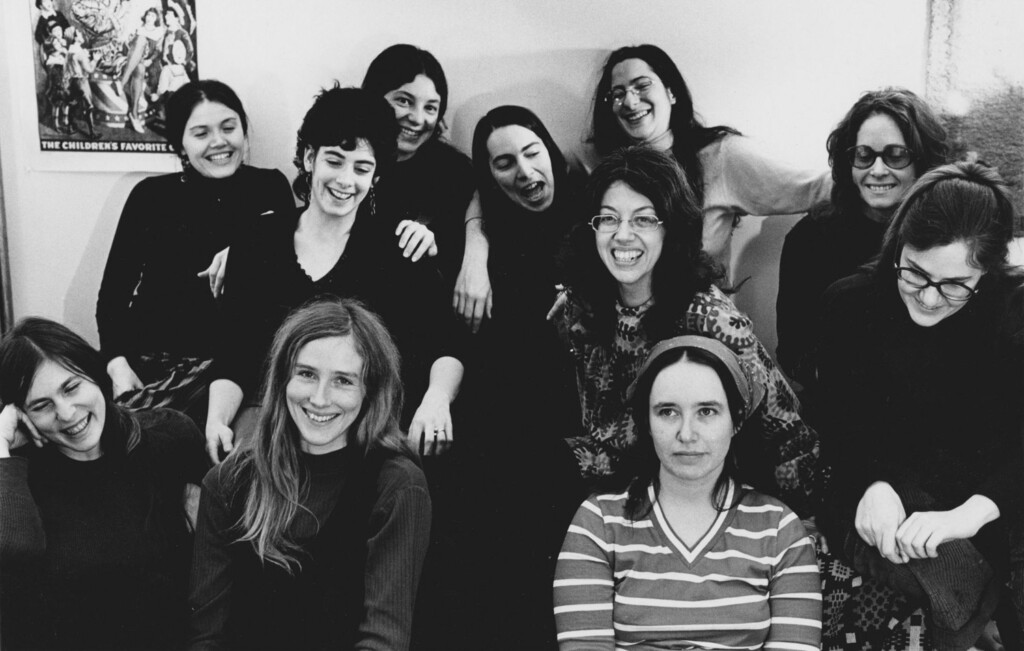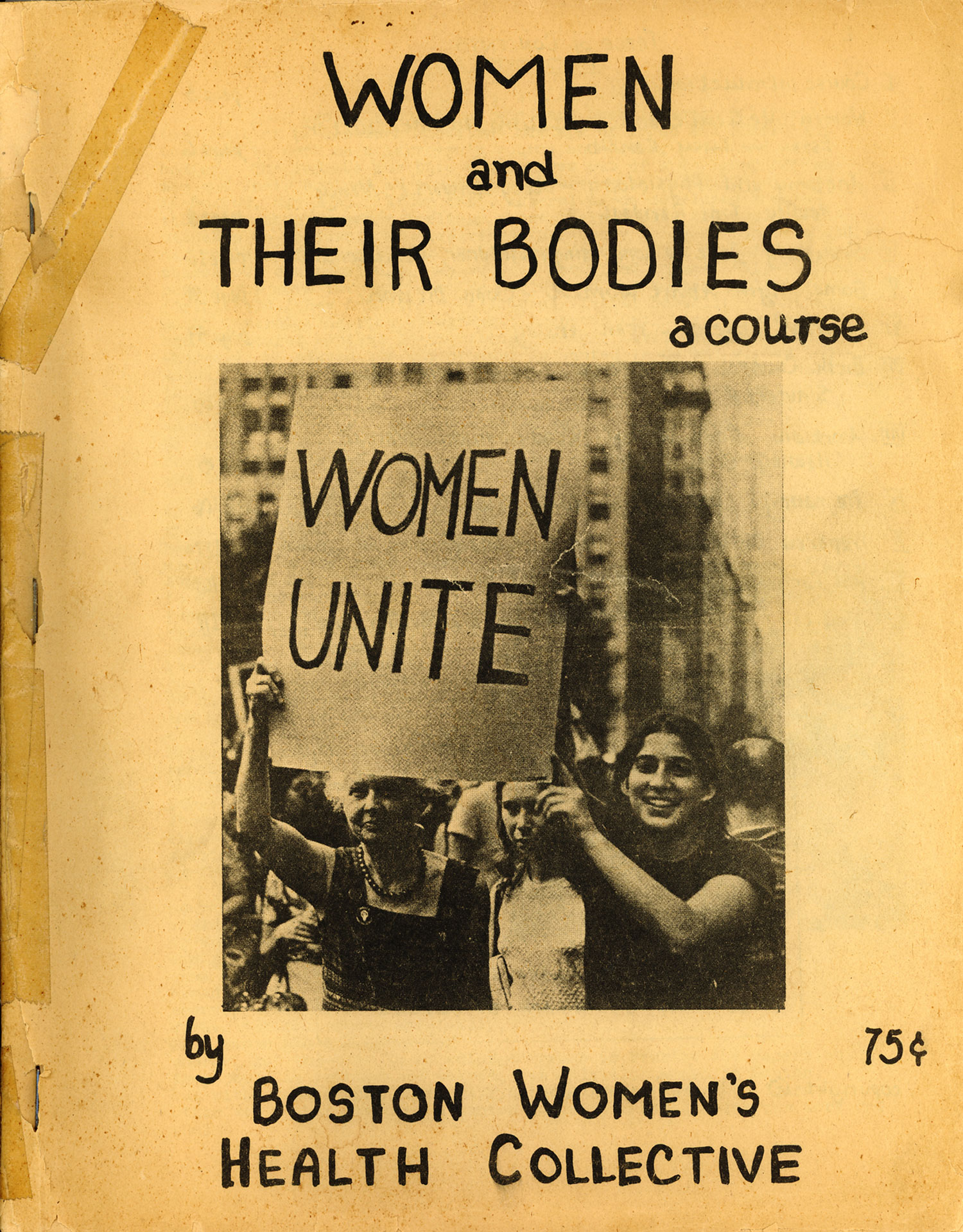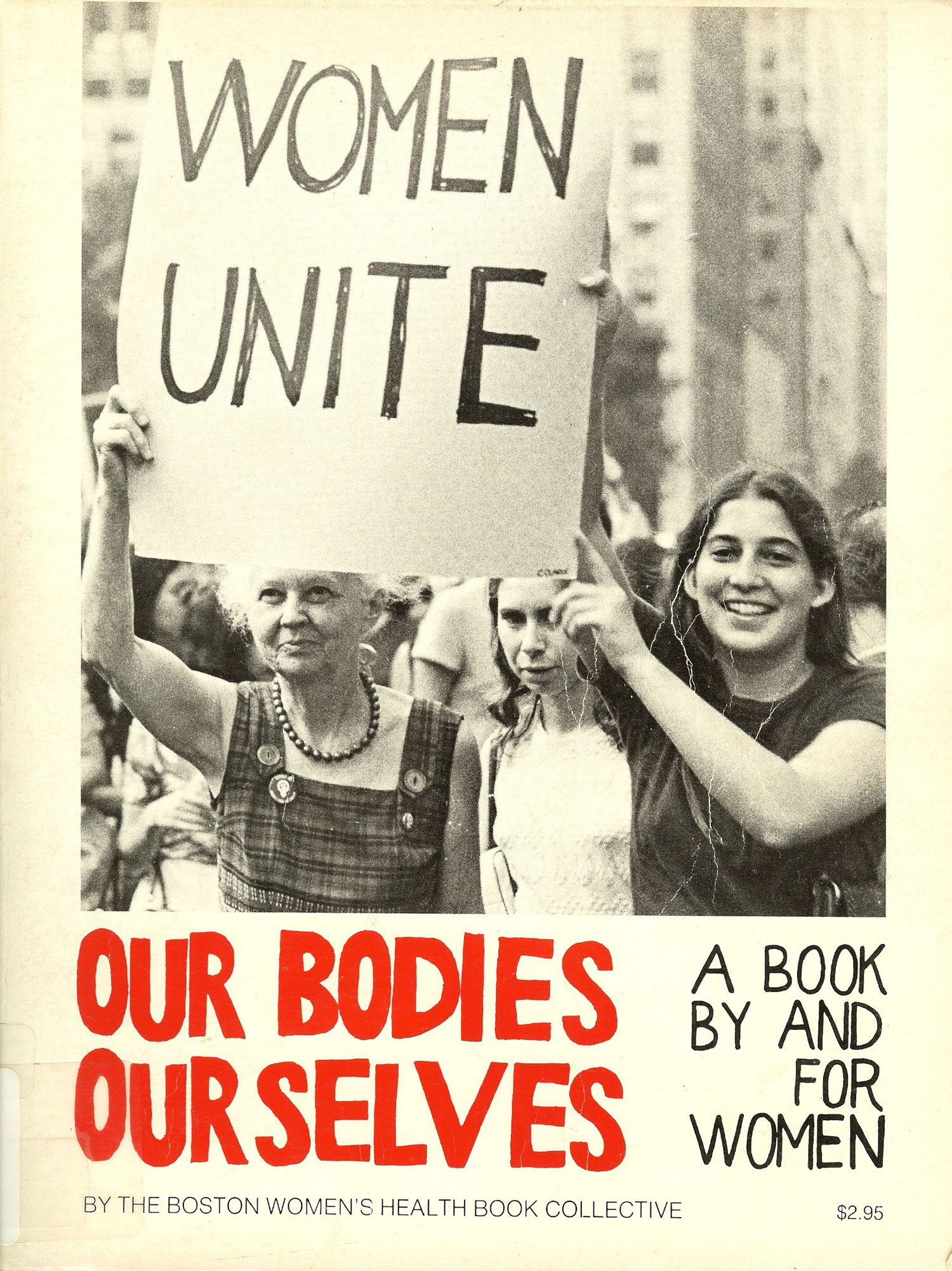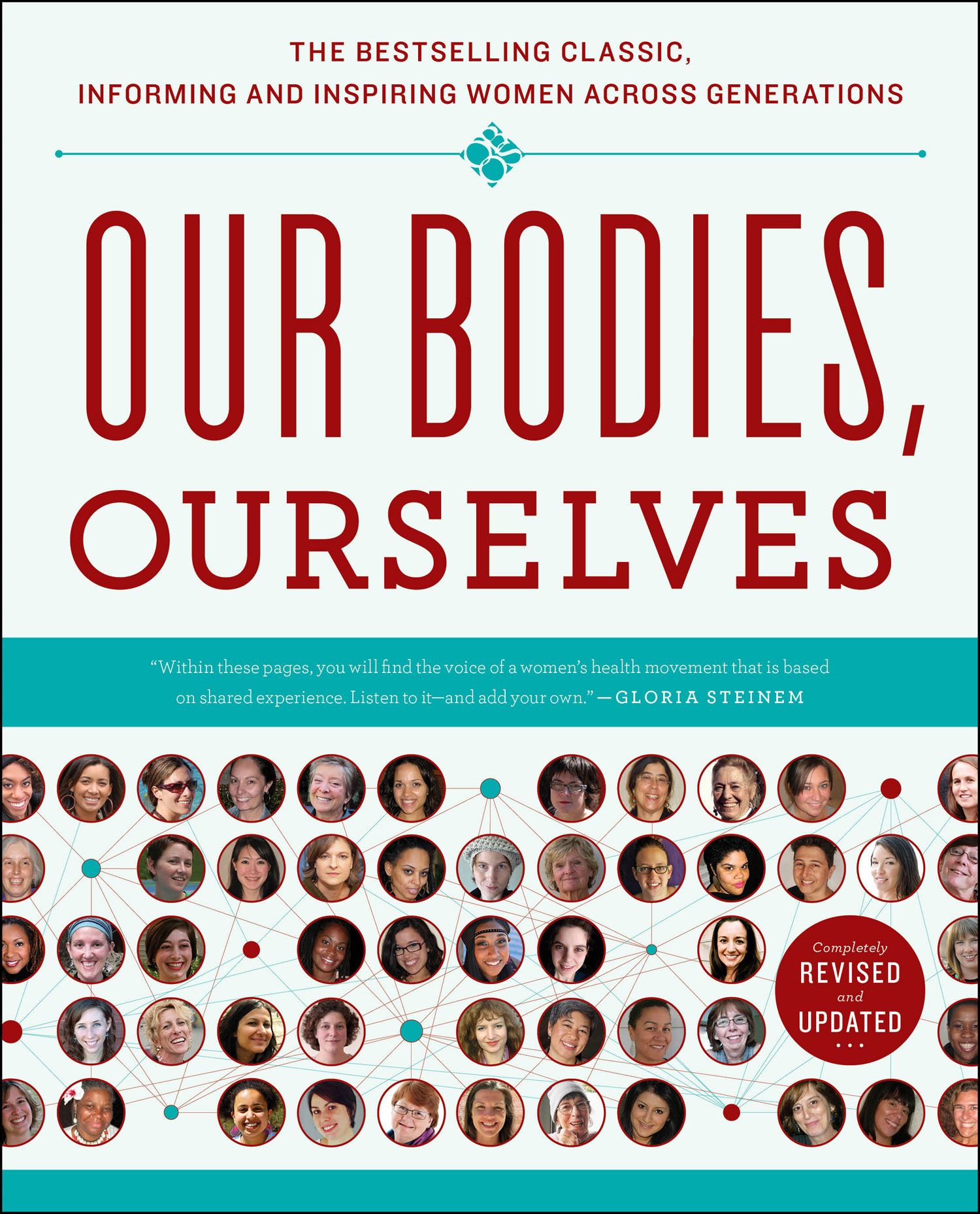The History & Legacy of Our Bodies Ourselves

In May of 1969, as the women’s movement was gaining momentum, a group of women in Boston met during a “female liberation conference” at Emmanuel College. In a workshop titled “Women and Their Bodies,” they shared their experiences with doctors and their frustration at how little they knew about how their bodies worked.
The discussions were so provocative and fulfilling that they formed the Doctor’s Group, the forerunner to the Boston Women’s Health Book Collective, to find out more about their bodies, their lives, their sexuality and relationships, and to talk with each other about what they learned. They decided to put their knowledge into an accessible format that could be shared and would serve as a model for women to learn about themselves, communicate their findings with doctors, and challenge the medical establishment to change and improve the care that women receive.
In 1970, they worked with the New England Free Press to publish a 193-page course book on stapled newsprint titled “Women and Their Bodies.”

The book was revolutionary for its frank talk about sexuality and abortion, which was then illegal. The cost: 75 cents.
In 1971, they changed the title to “Our Bodies, Ourselves” to emphasize women taking full ownership of their bodies. The book quickly became an underground success, selling 225,000 copies, mainly by word-of-mouth. The cost this time around: 30 cents.
In 1972, after strenuous debate, the group of founding authors decided to publish with a mainstream publisher in order to reach a wider audience. They formally incorporated as the Boston Women’s Health Book Collective and negotiated a contract with Simon & Schuster that included a 70 percent clinic discount for low-income women and provision for a U.S. Spanish translation.
The first commercial, expanded edition of “Our Bodies, Ourselves” was published in 1973. The preface and the first chapter, “Our Changing Sense of Self,” are available online.

That same year, Christopher Lehmann-Haupt reviewed the book for The New York Times. He had some “quibbles.” (We blogged about it in 2013, on the review’s 40th anniversary.)
For forty years, “Our Bodies, Ourselves” was updated and revised approximately every four to seven years. The most recent edition was published in 2011.

The book has sold millions of copies and received numerous honors. Library Journal named the 2011 edition one of the best consumer health books of the year. Also in 2011, Time magazine recognized “Our Bodies, Ourselves” as one of the best 100 nonfiction books (in English) since the founding of Time in 1923. In 2012, the Library of Congress included the original “Our Bodies, Ourselves” in the exhibit Books That Shaped America, a collection of 88 nonfiction and fiction titles “intended to spark a national conversation on books written by Americans that have influenced our lives.”
For many years, hundreds of people, including book and web content contributors, advisory board members, board members, founders, and staff and consultants collaborated to produce and promote evidence-based information on girls’ and women’s health and sexuality. This information, distributed through OBOS’s publications, website, and blog, also addressed the social, economic and political conditions that affect health care access and quality of care. This contextual information has inspired readers to learn more about — and work to change — the attitudes, policies and laws that affect their own and their family’s well-being.
In April 2018, the board, founders and staff of Our Bodies Ourselves came to the difficult conclusion that OBOS no longer had the resources to continue paying staff to develop health information and collaborate on translations and adaptations with our global partners. Over the spring and summer of 2018, OBOS transitioned to a volunteer-led 501(c)3 and scaled back our core work to two primary activities: advocating for women’s health and social justice and providing limited technical support to OBOS’s global partners.
That same year, Our Bodies Ourselves began a partnership with Suffolk University’s Center for Women’s Health and Human Rights to develop Our Bodies Ourselves Today, a new online platform that features updated, curated, and inclusive information about the health and sexuality of women and gender-expansive people. In 2022, the groups launched a joint website that features the best of the “old” Our Bodies Ourselves as well as extensive new health content.
Since its inception, Our Bodies Ourselves has had a tremendous impact on the lives, health, and human rights of women across the world. For more information about the history and legacy of Our Bodies Ourselves and the Boston Women’s Health Book Collective, see:
- The Our Bodies Ourselves Timeline: 1969 – present
- Selected Articles & Media About Our Bodies Ourselves
- The Impact and Influence of Our Bodies Ourselves
- The Founders of Our Bodies Ourselves
- “Our Bodies, Ourselves”: The Nine U.S. Editions
- The History of the Global Translations and Adaptations
- Other Publications by the Boston Women’s Health Book Collective
- “In Amerika They Call Us Dykes”: The Evolution of the Lesbian Chapter in “Our Bodies, Ourselves”
- The Impact of “Our Bodies, Ourselves” on Readers
- OBOS People Through the Years
- Selected Works By and About OBOS Founders
- OBOS in the News/Media Mentions, 2012 – present
- OBOS Press Releases, 2009 -2019
- OBOS Newsletters 2001 – 2013
- 40th Anniversary Symposium (2011): Advancing Health and Human Rights for Women and Girls
- The first edition of “Our Bodies, Ourselves” (1970): Full text
- The 1975 Harvard Conference on Women and Health
- From Both Ends of the Speculum: Reflections on Women’s Health Care in America
- Blog posts about Our Bodies Ourselves: 2006 – present
